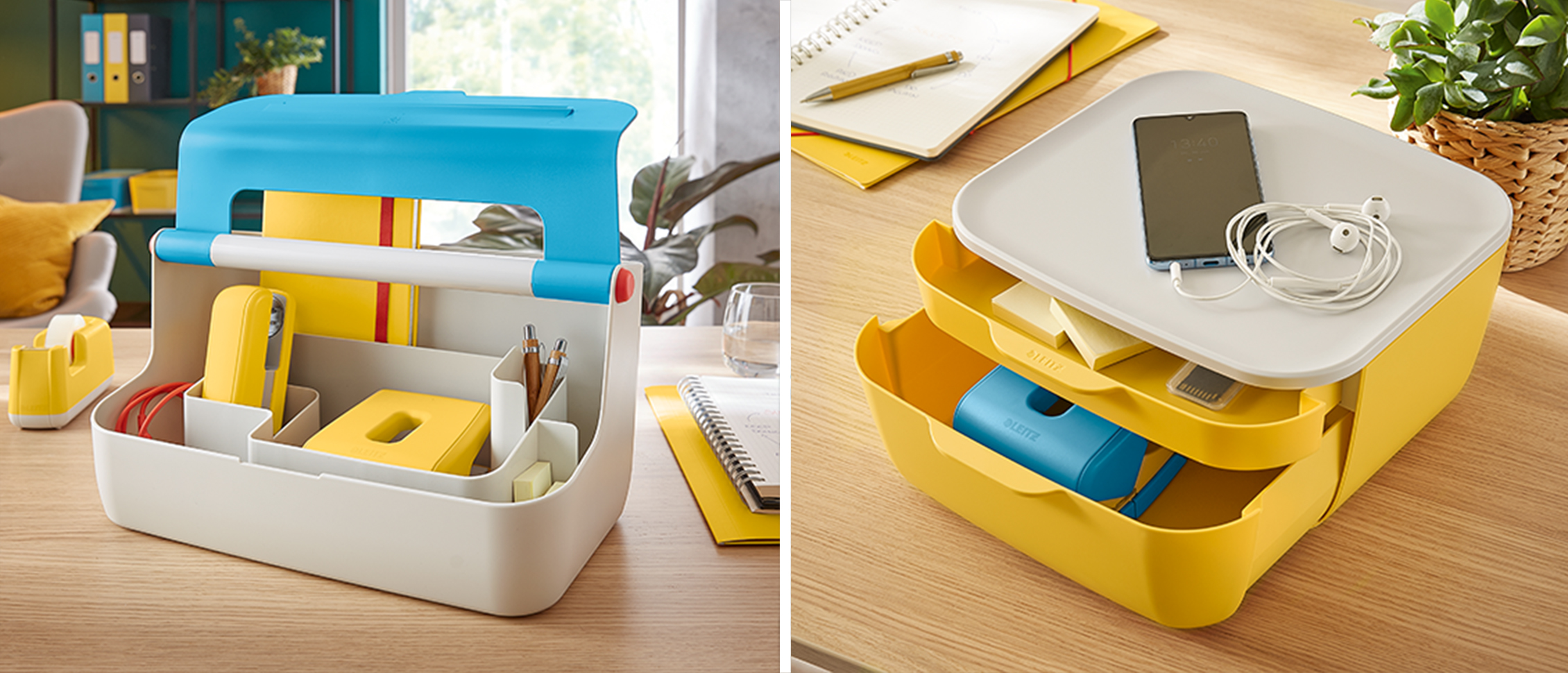How to Recover from Burnout at Work
11.05.2022

The number of people suffering from burnout at work has been on the rise, with the pandemic further exacerbating the problem. In a recent survey, 52% of respondents stated they were feeling burnt out and 67% believed that the feeling has been worsened over the pandemic. Another report showed that employees who suffer from burnout are 63% more likely to take a sick day and 23% more likely to take an emergency visit to hospital than those who don’t feel burnt out.
It's clear that burnout is a serious problem amongst workers, causing problems with both physical and mental health. Below, we look into how to recognise the signs of burnout and what you can do to recover from feelings of burnout at work.
What is Burnout?
Burnout is what happens when you have experienced consistently high levels of stress. This leads to you feeling both emotionally and physically drained and exhausted. This can cause problems with your physical and mental health.
Burnout can occur when you’ve been working too much or when you have been putting effort into a job role and not getting the results you wanted. Burnout can also occur when you have too many responsibilities given to you, and you struggle to keep on top of them.
Symptoms of Burnout
Burnout can present itself in a few different ways. It’s important to be aware of the various signs of burnout, so you can recognise when you might be suffering from it and need to make changes to recover. Symptoms of burnout include:
- Consistent feelings of exhaustion
- Finding no joy in your work
- Feeling overwhelmed
- Lack of motivation
- Difficulty concentrating on work
- Low self-esteem
- Feeling impatient and annoyed by other people
- Feeling detached and isolated
- Feeling hopeless
- Physical symptoms, such as headaches, digestive problems, and muscle tension
Tips to Recover from Burnout
Burnout recovery will look different for different people. Below are some tips that can help you to recuperate from burnout and find joy in your work again.
Determine the Source
The first place to start is to find what is triggering the feelings of stress that are leading to you experiencing burnout. It might be that you’re working long hours, or you don’t know what is expected of you at work. It could be that you don’t like your job, or perhaps you do like your job but you’re having problems with a colleague.
It could be helpful to keep a journal to keep a record of when you’ve felt stressed and what was the cause of it. Once you’ve kept this journal for a period of time, you might notice some patterns in what is triggering your stress and you can start addressing the problem directly.
Talk to Your Manager
Once you have an idea of what might be causing your feelings of burnout, you should speak to your manager or HR department about it. Burnout is now well known so they may already have possible solutions available to help you. You might also find it helpful to take your own suggestions for what could help, whether that might involve being taken off a particular project or trialling flexible working hours.
Having your own possible solutions can help to show your manager or HR department that you are serious about taking action, rather than just venting frustrations. You should be open to exploring options that the business suggests and be mindful that it might take some time to find the right solution for your situation.
Take Time Off
A good way of helping you to recover from burnout is to take some time off work. Whilst this isn’t a long-term solution, it can help your body and mind to reset. Research has shown that people who take a holiday from work are less at risk of heart attacks and have better all-round wellbeing.

If you take a holiday, you should make sure to completely switch off from work to give yourself proper distance. So, you should let your team know they won’t be able to contact you and also not check your emails whilst you’re off. When you return to work, you’ll likely find that you have more energy and feel more motivated. However, you will still need to deal with the factors that were causing you stress before you went away.
Get Organised
Sometimes it can be helpful to start small, and one way to help reduce your stress levels at work is to organise your workspace. Clutter can make us feel more stressed, so by taking the time to organise your desk, you can help yourself to work more productively and in a more relaxed environment.
Letter trays and document filing can help you to properly organise your paperwork, so you know where to find specific documents and keep on top of what needs to be dealt with. A glass memo board is a great, sustainable way of making notes and keeping reminders to hand. Stylish storage boxes are perfect for both remote working and in the office for keeping your equipment organised and keeping your desk free of clutter. Take some time to figure out exactly what you need to stay organised and ensure you have the right tools for the job.

You should also take time to organise your virtual desktop. If your company has a shared network, make sure to utilise this and the folder structure for your own files, so documents will be easy to find. A cluttered virtual desktop can cause just as much stress as a physical workstation, so be sure to keep your virtual files organised too.
Take Regular Breaks
You should make sure to take regular and frequent breaks throughout the working day. You’ll need time to slow down throughout the day, so you can reduce the risk of burnout and keep a healthy mind and body.
If possible, take your breaks away from your desk. Go for a quick walk, do some stretches, or just sit outside with a warm drink. This can give you a chance to unwind and reset, as well as helping you to work more productively when you return.
Set Boundaries
A symptom of burnout is feeling powerless, so take back control and help yourself to feel less stressed by setting firm boundaries to improve your work life balance. This could involve making sure you’re only working your set hours. If you work from home, you should aim to switch off at the end of the working day, and not continue working in your free time.
You might also need to delegate certain tasks to other members in your team if you are feeling overwhelmed with work. If you have spoken to your manager about your feelings of burnout, they should be able to assist you with this delegation if needed.
If you already have enough tasks on your plate, you should be able to say ‘no’ if someone asks you to do more. You can do this in a friendly and professional manner, perhaps offering to do it at a later date when you have less going on, or maybe instead helping to find an alternative colleague who could have the capacity to help.
Find the Joy in Your Work
It’s important to find the positives in your job and the joy in your work. This will help you to feel more motivated and also alleviate feelings of stress. Take some time to remember what you used to love about your job, why you wanted the role in the first place, and what brings you joy when working. Try to reframe your thinking – instead of focusing on the negatives, look for the positives. Whilst this won’t eliminate the negatives, it can help you to rediscover your joy for work and reduce feelings of burnout.

If you really struggle to find positives in your job and you’ve tried to take action against the negatives to no avail, it might be time to look for a new role. If this is the case for you, you should still take time to consider the positive aspects of working and use these when searching for a new job.
Look After Your Body
If you’ve been suffering from burnout, you have probably not had the capacity to give your body the attention that it needs. As part of your recovery process, take time to look after your body and physical health. This could involve finding an exercise you enjoy and participating in it regularly. This can also help you to regain a work life balance – blocking out time every week or every day to take part in exercise will give you a chance to step away from work.
You should also look at your diet to ensure you’re eating healthy, nutritious meals. Getting the right vitamins and minerals into your body will help to keep it healthy and stave off illnesses, which is especially important when you’ve undergone long periods of stress where your body is more vulnerable.
You should also ensure you’re getting plenty of good sleep. Sleep is vital to repairing our bodies and also giving us the energy we need to get through the day. Find a calming and relaxing bedtime routine that works for you to help you get the sleep you need.
Seek Professional Help
If you have attempted to take action to recover from burnout but find that you are still suffering from the physical and mental symptoms, you should seek professional help. A qualified health professional will be able to advise on any stress-related illnesses and also offer the right mental health support that you might require.
Leitz has a range of tools and equipment for both office working and your home office to create an efficient and relaxing working environment.
Read more about keeping a healthy work life balance and looking after your wellbeing at work:
10 Indicators You Need to Switch Off from Work
The Best Ways to Combat Winter Burnout When Working from Home
10 Simple Work Habits for When You Need a Break